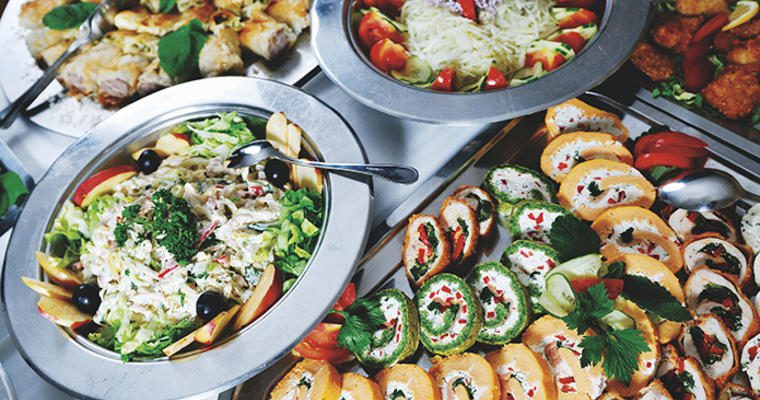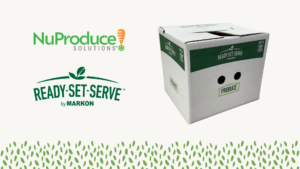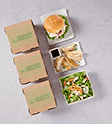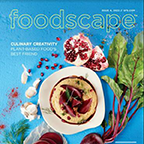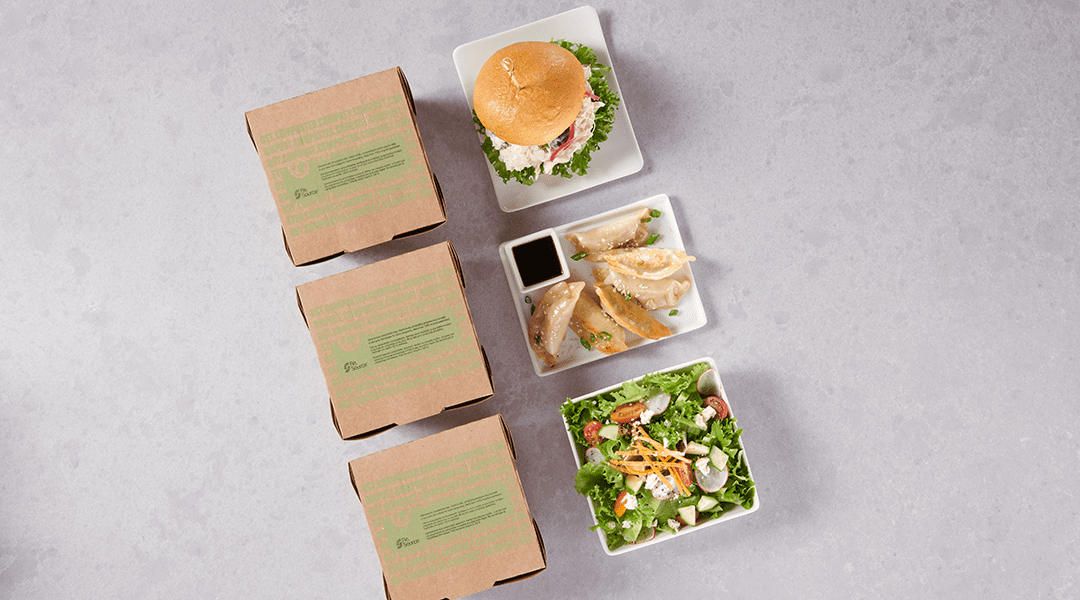Ashland University’s mascot is the Eagle, a symbol of strength. In that spirit, the school’s dining program spreads its wings and uses its catering service to fill the calendar with more than 1,700 events each year. It’s an effort that relies on the ability to attract off-campus student and non-student groups to use campus facilities and foodservice operations.
At the helm is Carrie Gough, Ashland’s Auxiliary Marketing and Catering Manager, who uses equal parts of hard work, organization and creativity to operate the program. These are qualities she has developed during the five years she has worked at Ashland and during previous roles with an entertainment tour group and running an event-planning business. In short, juggling a lot of activities is not a circus, it’s business as usual.
Whether it’s catering for philanthropy events on campus, hosting clubs and organizations or campus mixers, Gough and her team make the decision easy for potential clients—tell us what you need, and we’ll take it from there. Whether the clients are the Student Senate or the local Knights of Columbus, all they need to do is show up and enjoy.
“If a Greek-life organization wants to host a Mother’s Tea, we are prepared to set up that event,” Gough says. “We cater for groups as small as five people and events that have more than 1,000.”
Worry-free catering services
It’s that worry-free promise that keeps Gough’s catering dance card full. By assuring clients that all of their needs will be met, she is able to book all types of organizations into the campus Convocation Center and meeting rooms.
Her team includes supervisory staff, wait staff, delivery and setup teams, plus support services—about 70 to 80 people depending on seasonal needs. Gough relies on three full-time and two part-time supervisors to manage all of the events. Each supervisor is a trained hospitality professional, many of whom started as wait staff and learned from the ground up.
“Strong supervisors make it easy to attract people to use our campus facilities,” Gough admits. “It’s their job to be the commander in chief of every event.”
They act as a liaison between the event host and everyone else involved. The supervisors and their teams are able to provide tables, chairs, linens, tableware, food and more, including the DJ, photographer and, for a fee, audio-visual and computer tech services. They’re prepared to work both on campus and off campus, but there’s an incentive that brings events to campus buildings—the facilities are free when the campus dining service is hired to provide breakfast, lunch or dinner meals.
Taking advantage of price breaks
Gough calls upon her event-planning leadership skills to make it all work. As a self-operational team, catering services is able to work like a business with the benefit of having school meeting rooms, banquet halls and convention areas available. For student groups and campus organizations, the catering service is able to provide a discount on food and beverages that come from the Ashland Dining Services, in addition to free delivery, there are no service fees and no taxes. Events hosted off campus incur a state tax, a 12 percent service fee, an off-site delivery fee based on mileage, as well as the full cost of food and beverages.
“The Dining Services program becomes part of our production staff,” Gough says. “When we book parties or events, we notify them through our recipe and inventory system to help with the ordering process.”
Events can include anything from a doughnut fundraiser in a building hallway or a wedding on the campus lawn. Judging by the demand, it’s an effective system—events are being booked two years ahead in some instances.
Sometimes there are surprise events, such as a lunch for 30 people who remained on campus longer than expected or, during the 2016 campaign season, a visit from vice presidential candidate Mike Pence. Gough calls those “pop-up events,” and that one called on her team to work with Secret Service personnel to get the job done.
A made-to-order solution
Another way Ashland serves off-campus students is through an innovative grocery program called The Eagle’s Marketplace. This online service provides produce, grocery and meat items for pickup or delivery. Busy students can log in, place an order, pay with their meal swipe card and have the food delivered free to their dorm or campus apartment.
Shoppers can browse the online aisles and choose from more than 10,000 items, including everything from beverages and breads to deli and party platters. Need a single onion or a box of Pop Tarts? No problem—it’s just like shopping at the neighborhood market. The site also lists new items and weekly sale items. It also has suggested shopping lists and accepts ideas for items students would like to see in stock.
All of this takes a lot of communication. Gough’s catering team provides student organizations with literature touting available services. She also uses bulletin boards and signage around campus, as well as campus televisions and the school’s online portal, which provides menus, venue information, an FAQ section and contact information.
“When it comes to reaching people off-campus, we utilize social media and we have been experimenting with click ads and Google AdWords,” Gough says. “But our biggest tool is our customer services and our database—if we treat people right, they will come back again and again.”
Catering to win
Successful catering, Gough says, starts with building toward leadership each step of the way. Here is her three-step process:
- Do all the paperwork, find out about each job candidate’s experience, answer questions and tell them your expectations.
- Once hired, train in the basics. Give them a tour and let them observe the program and watch an event setup or tear-down.
- Have them do a mock setup or shadow a catering to team to see what the work entails.
The goal: Develop staffers who are able to work independently, understand the catering service’s brand and deliver on that brand without having to seek help.
Attracting fresh faces
College and university dining programs are always looking for ways to reach students who live off-campus. Here are some ideas:
Practice word power. Use words like “fresh,” “local,” “organic,” “fair trade,” etc. to market appealing qualities of the food you serve.
Create a meal bank. Make a number of unredeemed student meal swipes available first-come, first-served to off-campus students who sign up with an app.
Food trucks. Make campus meals available on the street. It can be done with a campus-operated food truck or operated through a private business.
